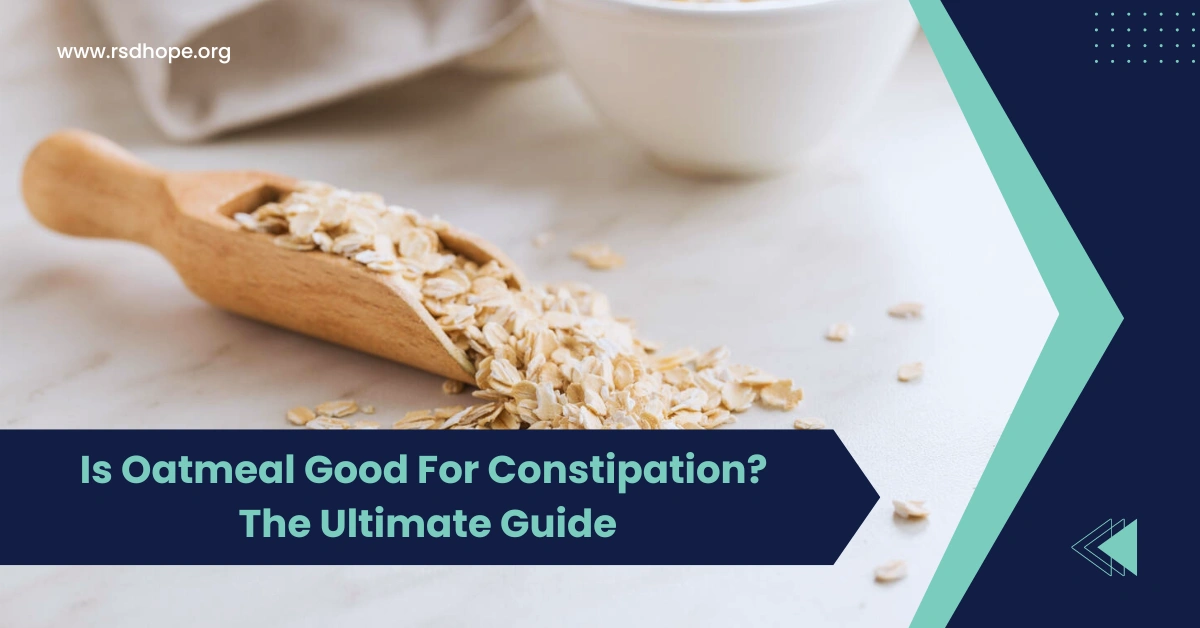Constipation is a common digestive issue that affects millions of people worldwide. While there are many potential remedies, one simple and delicious solution might be hiding in your breakfast bowl: oatmeal. This humble grain has long been touted for its health benefits, but can it really help alleviate constipation? Let’s dive in and explore the science behind oatmeal’s potential as a constipation-fighting superfood.
Key Takeaways
- Oatmeal’s high fiber content can help promote healthy digestion and relieve constipation.
- Choosing whole grain oats, like steel-cut or rolled oats, provides the most fiber and constipation-fighting power.
- Incorporating oatmeal into a balanced diet, along with proper hydration and exercise, can help manage constipation effectively.
Why is oatmeal good for constipation?
The secret to oatmeal’s constipation-relieving powers lies in its impressive fiber content. Fiber is a type of carbohydrate that our bodies can’t digest, but it plays a crucial role in keeping our digestive system running smoothly. Oatmeal is particularly rich in soluble fiber, which absorbs water and forms a gel-like substance in the gut.
This helps add bulk to stool, making it softer and easier to pass through the digestive tract. In fact, just one cup of cooked oatmeal contains around 4 grams of fiber, which is about 16% of the daily recommended intake, according to the United States Department of Agriculture (USDA).
Also Read: How Do Vitamins Help With Constipation?
What type of oatmeal is good for constipation?
When it comes to choosing oatmeal for constipation relief, not all oats are created equal. The three main types of oatmeal are steel-cut, rolled, and instant oats, and they differ in their processing and fiber content. Steel-cut oats are the least processed, as they’re simply whole oat groats that have been chopped into smaller pieces.
Rolled oats, also known as old-fashioned oats, are made by steaming and flattening the groats. Instant oats are the most processed, as they’re pre-cooked, dried, and then rolled even thinner for quicker cooking.
For maximum constipation-fighting power, opt for whole-grain oats like steel-cut or rolled oats. These varieties retain more of their natural fiber content compared to instant oats. Plus, they’re less likely to contain added sugars or artificial ingredients that could potentially aggravate digestive issues.
How to make oatmeal to treat constipation?
Making oatmeal that’s optimized for constipation relief is easy and delicious. Start with a base of whole grain oats, then add in extra fiber-rich ingredients like fresh or dried fruits, nuts, and seeds. Some tasty combinations include:
- Steel-cut oats with sliced bananas and a sprinkle of chia seeds
- Rolled oats with diced apples, cinnamon, and chopped walnuts
- Overnight oats with blueberries, shredded coconut, and a dollop of almond butter
When cooking your oatmeal, be sure to use the proper ratio of oats to liquid (usually 1:2) and simmer until the oats are tender and the mixture thickens. This helps ensure that the oats retain their fiber content and digestive benefits.
Other Considerations for Constipation
While oatmeal can be a helpful tool in managing constipation, it’s important to remember that it’s just one piece of the puzzle. To keep your digestive system running smoothly, be sure to:
- Drink plenty of water and other fluids throughout the day
- Eat a variety of high-fiber foods like fruits, vegetables, and whole grains
- Engage in regular physical activity, which can help stimulate bowel movements
- Listen to your body’s cues and don’t ignore the urge to go to the bathroom
If constipation persists despite dietary and lifestyle changes, it’s always best to consult with your healthcare provider to rule out any underlying medical conditions.
Conclusion
Oatmeal is a delicious and nutritious breakfast staple that may offer some powerful constipation-fighting benefits. Thanks to its high fiber content, particularly soluble fiber, oatmeal can help promote healthy digestion, add bulk to stool, and make bowel movements easier to pass.
By choosing whole-grain oats, getting creative with add-ins, and incorporating oatmeal into a balanced diet rich in fiber and fluids, you can harness the power of this humble grain to keep constipation at bay. So go ahead and enjoy a comforting bowl of oatmeal – your digestive system will thank you!
Read More: Can Antibiotics Cause Constipation? Exploring The Gut Health Connection
FAQs
A: Yes, it’s generally safe to eat oatmeal daily as part of a balanced diet. However, if you’re experiencing persistent constipation, it’s best to consult with your healthcare provider to rule out any underlying issues.
A: While instant oatmeal can still provide some fiber, it’s often more processed and may contain added sugars or artificial ingredients. For maximum constipation-fighting power, choose whole-grain oats like rolled or steel-cut varieties.
A: Absolutely! Adding fiber-rich ingredients like fresh or dried fruits, nuts, and seeds can enhance the constipation-fighting power of your oatmeal. Just be sure to introduce new foods gradually to avoid overwhelming your digestive system.
A: The time it takes for oatmeal to help alleviate constipation can vary from person to person. Some may experience relief within a few days of incorporating oatmeal into their diet, while others may take longer. Consistency is key, so aim to include oatmeal as part of a balanced, fiber-rich diet for the best results.
References:
https://www.niddk.nih.gov/health-information/digestive-diseases/constipation

